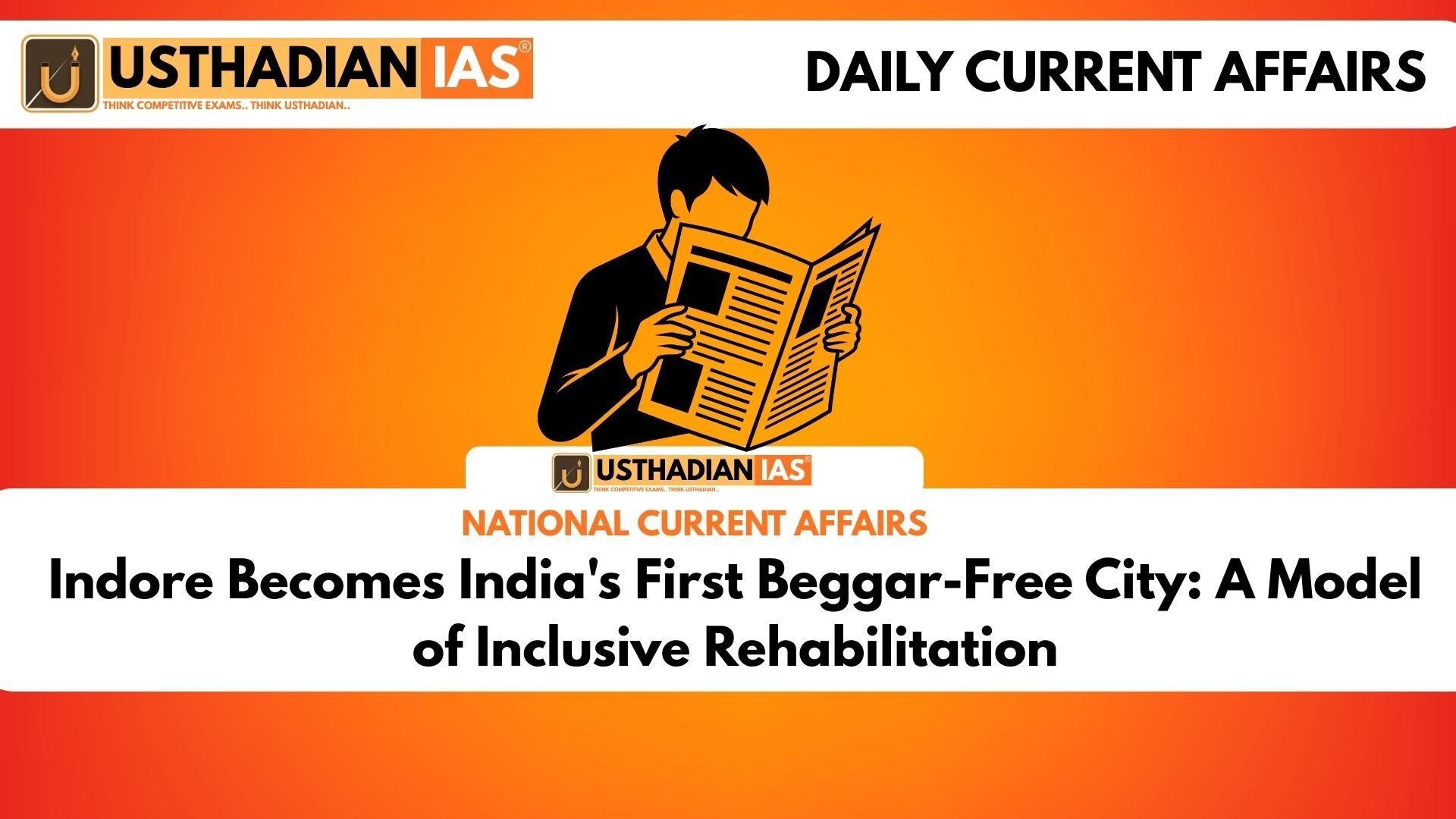A Social Milestone in Urban India
Indore Becomes India’s First Beggar-Free City: A Model of Inclusive Rehabilitation: In a groundbreaking achievement, Indore has become the first city in India to be officially declared free of beggars.This announcement was made by District Magistrate Ashish Singh, who credited the success to a community-driven campaign launched in February 2024. What makes this achievement truly notable is not just the removal of beggars from the streets, but the successful rehabilitation of nearly 5,000 individuals. The campaign has attracted national recognition and even praise from the World Bank, making it a potential model for cities across India.
How Indore Tackled Begging: Step by Step
The campaign didn’t just remove people from public places—it focused on rebuilding lives. It began with an awareness drive, educating citizens on how indiscriminate donations can often enable exploitation. This was followed by targeted rehabilitation, where beggars were classified into three groups: habitual beggars (60%), those begging due to poverty or disability (20%), and those coerced into begging (20%), including children and drug addicts. Each group received customised intervention—whether it was job training, education, or mental health support.
Take the example of young children from vulnerable communities who were enrolled in schools, or adults who were provided with skill training to become self-reliant. These stories of change are what define Indore’s campaign.
The Power of Community and Enforcement
Community participation played a key role. Special focus was placed on resistant groups like the Nath and Nut Samaj, whose traditional ties to begging made rehabilitation more complex. Instead of using force, the administration offered support within their communities, including training and basic services. This built trust and helped in transitioning these groups into safer, sustainable livelihoods.
On the enforcement side, a legal ban on both begging and giving alms was introduced. Citizens were warned, and FIRs were filed against repeated violations. A reward system was even set up to encourage people to report begging activity—turning the public into active participants in maintaining the change.
World Bank Praises Indore’s Efforts
A team from the World Bank visited Indore, inspecting once-busy begging zones only to find them empty. They also toured a rehabilitation centre offering shelter, counselling, and skill-building. Impressed by the city’s planning and impact, the team plans to submit a report to the Prime Minister’s Office, showcasing Indore’s model as an example for replication across India.
What Lies Ahead?
While Indore’s success is promising, the initiative is still in a trial phase. An official inspection from the Ministry of Social Justice and Empowerment is expected shortly. If the city passes the review, it could be the beginning of a national shift in urban welfare, redefining how cities deal with marginalised populations.
STATIC GK SNAPSHOT
Indore Becomes India’s First Beggar-Free City: A Model of Inclusive Rehabilitation:
| Topic | Details |
| City Declared Beggar-Free | Indore, Madhya Pradesh |
| Campaign Started | February 2024 |
| Collector Leading the Initiative | Ashish Singh, District Magistrate |
| Supporting Ministry | Ministry of Social Justice and Empowerment |
| Number of People Rehabilitated | ~5,000 |
| Notable Community Involved | Nath and Nut Samaj |
| Global Recognition | Praised by World Bank, 2025 |
| Ban Enforced | On begging and giving alms |
| Possible Expansion | Model for other Indian cities |








